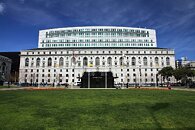T0@st
News Editor
- Joined
- Mar 7, 2023
- Messages
- 2,847 (3.74/day)
- Location
- South East, UK
| System Name | The TPU Typewriter |
|---|---|
| Processor | AMD Ryzen 5 5600 (non-X) |
| Motherboard | GIGABYTE B550M DS3H Micro ATX |
| Cooling | DeepCool AS500 |
| Memory | Kingston Fury Renegade RGB 32 GB (2 x 16 GB) DDR4-3600 CL16 |
| Video Card(s) | PowerColor Radeon RX 7800 XT 16 GB Hellhound OC |
| Storage | Samsung 980 Pro 1 TB M.2-2280 PCIe 4.0 X4 NVME SSD |
| Display(s) | Lenovo Legion Y27q-20 27" QHD IPS monitor |
| Case | GameMax Spark M-ATX (re-badged Jonsbo D30) |
| Audio Device(s) | FiiO K7 Desktop DAC/Amp + Philips Fidelio X3 headphones, or ARTTI T10 Planar IEMs |
| Power Supply | ADATA XPG CORE Reactor 650 W 80+ Gold ATX |
| Mouse | Roccat Kone Pro Air |
| Keyboard | Cooler Master MasterKeys Pro L |
| Software | Windows 10 64-bit Home Edition |
Apple and Epic Games have been locked in a bitter legal feud for two years, relating to an antitrust case started by the latter company. The iPhone and Mac computer giant has made an appeal to the US Supreme Court—as demonstrated in a court filing that was released to the public on Monday (June 3). They request that justices take up its appeal of a ruling for tomorrow (June 7) by the San Francisco-based 9th U.S. Circuit Court (of Appeals). A 2021 verdict determined that Apple had to cease anti-steering practices. Apparently game developers were restricted to certain payment practices (imposing of fees) within the iOS App store. Epic Games sued Apple for anti-competitive practices back in 2020, with the US district court of California rejecting nine of out Epic's ten claims the following year—only the aforementioned anti-steering case was allowed to proceed.
The Ninth Circuit rejected petitions from Apple and Epic late last week—both companies urged that the court reconsider an April 2023 decision about the Californian law violation. Epic thinks that certain legal decisions have been made in Apple's favor, and the latter continues to rile against the App Store order. It argues that Epic was the sole "non-representative" plaintiff, yet the injunction applies to all iOS developers and US states outside of California. Apple believes that the ruling "raises far-reaching and important questions" about the federal court's limited authority to issue injunctions that apply to organizations not directly involved in the case.



View at TechPowerUp Main Site | Source
The Ninth Circuit rejected petitions from Apple and Epic late last week—both companies urged that the court reconsider an April 2023 decision about the Californian law violation. Epic thinks that certain legal decisions have been made in Apple's favor, and the latter continues to rile against the App Store order. It argues that Epic was the sole "non-representative" plaintiff, yet the injunction applies to all iOS developers and US states outside of California. Apple believes that the ruling "raises far-reaching and important questions" about the federal court's limited authority to issue injunctions that apply to organizations not directly involved in the case.



View at TechPowerUp Main Site | Source

